Let the sell-out begin.
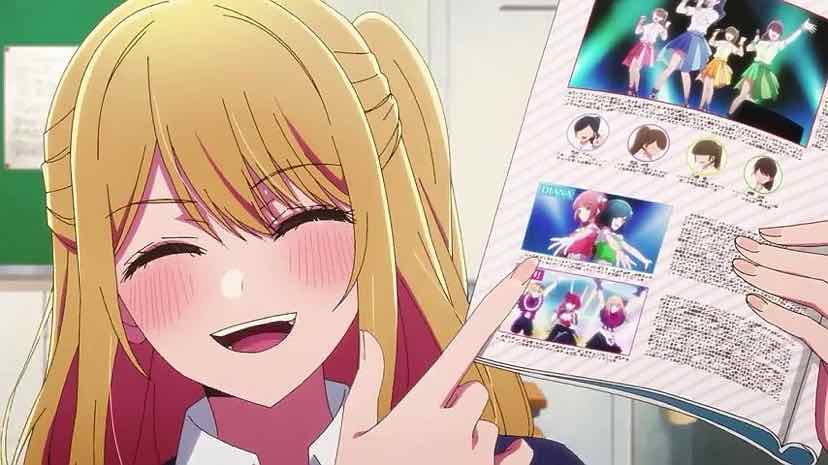 Is what kind of want to say. But it’s probably too early. Problem is, with Oshi no Ko I’m conditioned to Akasaka doing just that. It’s an assumption that he’s going to pull his punches when it comes to real criticism. In the end, the goodness of the principals involved will always redeem any sect of the Japanese animation industry, no matter how sleazy and depraved. Of course we can’t be sure that will always be the case until the series is actually over. But with a 100% track record so far, it seems like by far the safer bet.
Is what kind of want to say. But it’s probably too early. Problem is, with Oshi no Ko I’m conditioned to Akasaka doing just that. It’s an assumption that he’s going to pull his punches when it comes to real criticism. In the end, the goodness of the principals involved will always redeem any sect of the Japanese animation industry, no matter how sleazy and depraved. Of course we can’t be sure that will always be the case until the series is actually over. But with a 100% track record so far, it seems like by far the safer bet.
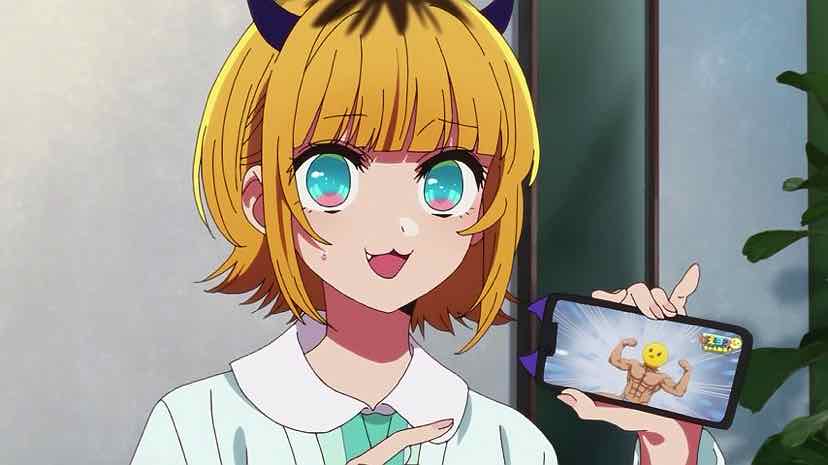 This whole “Tokyo Blade” situation is certainly interesting, but creating interesting situations is never the problem with this series. Far from it. Just how much Akasaka is writing from personal experience with Kaguya-sama is hard to know. It got a live-action that as far as I know wasn’t exactly beloved, and an anime that was considerably better-regarded. Now as a general rule IMO anime adaptations of manga are likely to be better than dramas or live-action movies to begin with. And Kaguya-sama had one of the best directors in the business on its anime. But it’s interesting to watch Oshi no Ko delve into some of the reasons why.
This whole “Tokyo Blade” situation is certainly interesting, but creating interesting situations is never the problem with this series. Far from it. Just how much Akasaka is writing from personal experience with Kaguya-sama is hard to know. It got a live-action that as far as I know wasn’t exactly beloved, and an anime that was considerably better-regarded. Now as a general rule IMO anime adaptations of manga are likely to be better than dramas or live-action movies to begin with. And Kaguya-sama had one of the best directors in the business on its anime. But it’s interesting to watch Oshi no Ko delve into some of the reasons why.
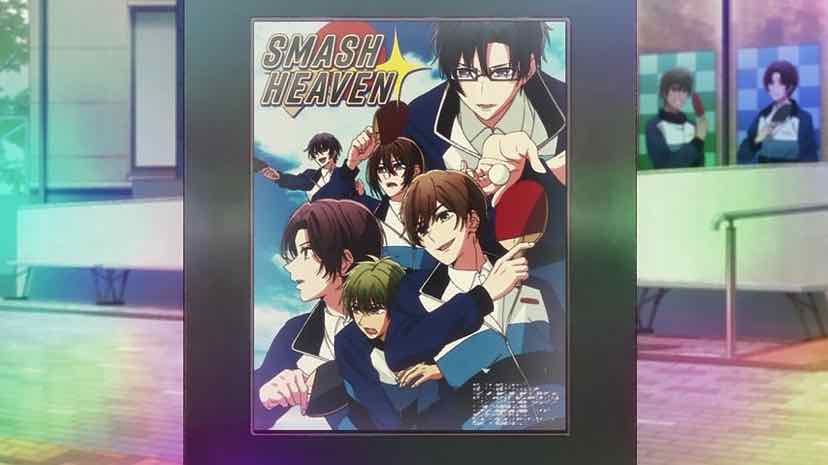 The play is abjectly a disaster at this point, thanks to Abiko-sensei’s meddling. Akane’s decision to take Aqua to see Stage Around Tokyo’s (that theatre has closed, BTW) “Smash Heaven” (Prince of Ping Pong?) has paid off because Aqua has an open mind. His anti-theatre bias (that’s a snobbery that cuts both ways) is tempered by the realization that in the unique setting of a 2.5D production, the old rules don’t apply. And a 2.5D play needs a scriptwriter than understands how to take advantage of the format (and GOA-sensei wrote “Smash Heaven’s” play, as it turns out).
The play is abjectly a disaster at this point, thanks to Abiko-sensei’s meddling. Akane’s decision to take Aqua to see Stage Around Tokyo’s (that theatre has closed, BTW) “Smash Heaven” (Prince of Ping Pong?) has paid off because Aqua has an open mind. His anti-theatre bias (that’s a snobbery that cuts both ways) is tempered by the realization that in the unique setting of a 2.5D production, the old rules don’t apply. And a 2.5D play needs a scriptwriter than understands how to take advantage of the format (and GOA-sensei wrote “Smash Heaven’s” play, as it turns out).
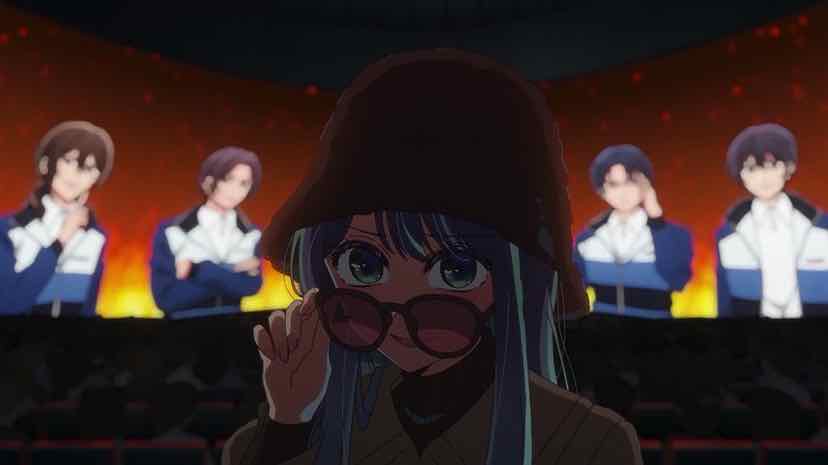 Abiko is pretty much a walking disaster. Aqua assumes she’s going to write a script for a play in a “high school auditorium”, and he’s probably right. So, as a favor to Raida and to try and defoul his own bath, he and his castmates pay a visit to Kichijouji-sensei, the mangaka of “I’ll Go with Sweet Today”. TBH I’d totally forgotten she was the mangaka who briefly appeared in S1 as her manga was being trashed. Aqua surmises that the only one who has a chance to break through Abiko’s great wall of ego is her old mentor. But Kichijouji is reluctant, and it’s easy to see why. As someone who took a hands off approach with “Sweet Today” and was presenting a steaming turd of an adaptation, who is she to lecture?
Abiko is pretty much a walking disaster. Aqua assumes she’s going to write a script for a play in a “high school auditorium”, and he’s probably right. So, as a favor to Raida and to try and defoul his own bath, he and his castmates pay a visit to Kichijouji-sensei, the mangaka of “I’ll Go with Sweet Today”. TBH I’d totally forgotten she was the mangaka who briefly appeared in S1 as her manga was being trashed. Aqua surmises that the only one who has a chance to break through Abiko’s great wall of ego is her old mentor. But Kichijouji is reluctant, and it’s easy to see why. As someone who took a hands off approach with “Sweet Today” and was presenting a steaming turd of an adaptation, who is she to lecture?
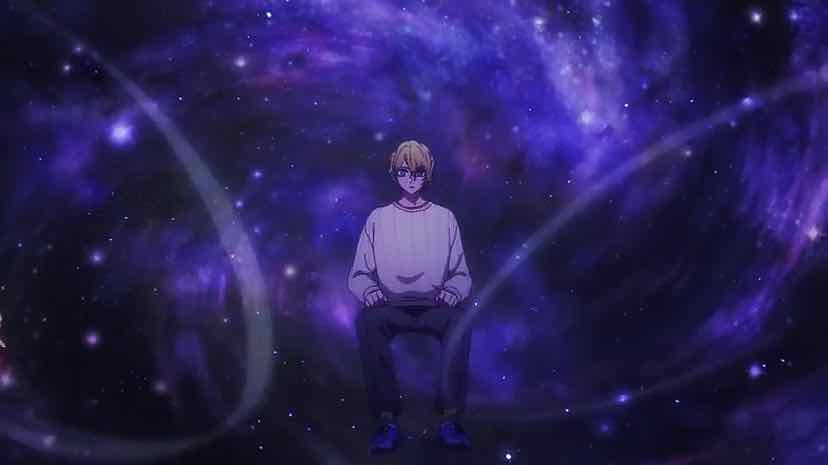 Obviously there are times when something other than the two disastrous extremes presented here come to pass – not all stage play and drama adaptations of manga are turds. So I’ll give Akasaka-sensei that much – it could happen. But Abiko-sensei is such an inflexible an arrogant jerk that it’s hard to imagine things being resolved as easily as they’re (apparently) about to. And that whole scene with she and Kichijouji-sensei as her apartment had an air of contrivance to it that didn’t really work for me.
Obviously there are times when something other than the two disastrous extremes presented here come to pass – not all stage play and drama adaptations of manga are turds. So I’ll give Akasaka-sensei that much – it could happen. But Abiko-sensei is such an inflexible an arrogant jerk that it’s hard to imagine things being resolved as easily as they’re (apparently) about to. And that whole scene with she and Kichijouji-sensei as her apartment had an air of contrivance to it that didn’t really work for me.
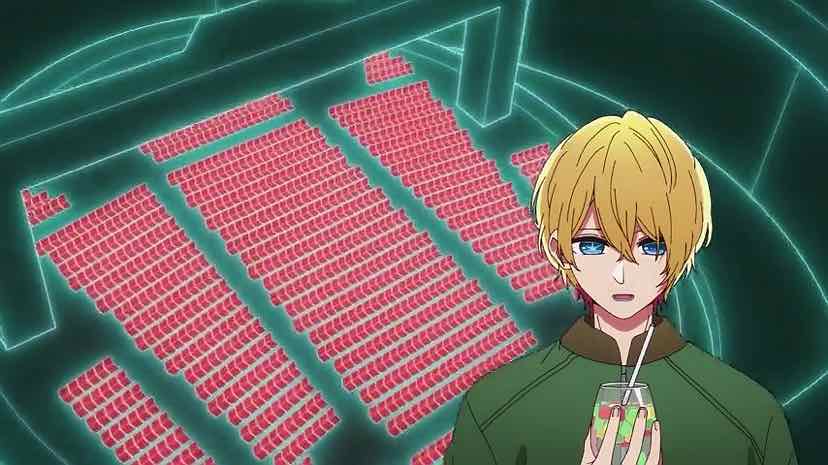 I feel like Akasaka is manipulating events to get us to his preferred happy ending with “Tokyo Blade”. And Aqua passing on a ticket to “Smash Heaven” to Abiko via Kichijouji is consistent with that impression. I guess I have less patience for that with a series that already has a history of copping out, which is probably not fair of me – again, some adaptations do work out okay, even live-action ones. But OnK is, as I’ve said, so much better when it’s gritty and unvarnished – both because that’s so much rarer in this sub-genre, and because the material itself is simply more effective. Let’s hope things aren’t sanitized too badly where this arc and its conclusion are concerned (and we have a long way to go).
I feel like Akasaka is manipulating events to get us to his preferred happy ending with “Tokyo Blade”. And Aqua passing on a ticket to “Smash Heaven” to Abiko via Kichijouji is consistent with that impression. I guess I have less patience for that with a series that already has a history of copping out, which is probably not fair of me – again, some adaptations do work out okay, even live-action ones. But OnK is, as I’ve said, so much better when it’s gritty and unvarnished – both because that’s so much rarer in this sub-genre, and because the material itself is simply more effective. Let’s hope things aren’t sanitized too badly where this arc and its conclusion are concerned (and we have a long way to go).


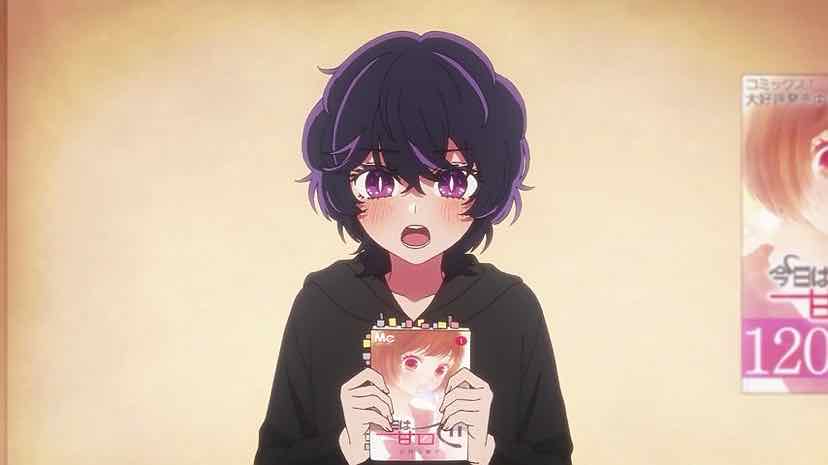
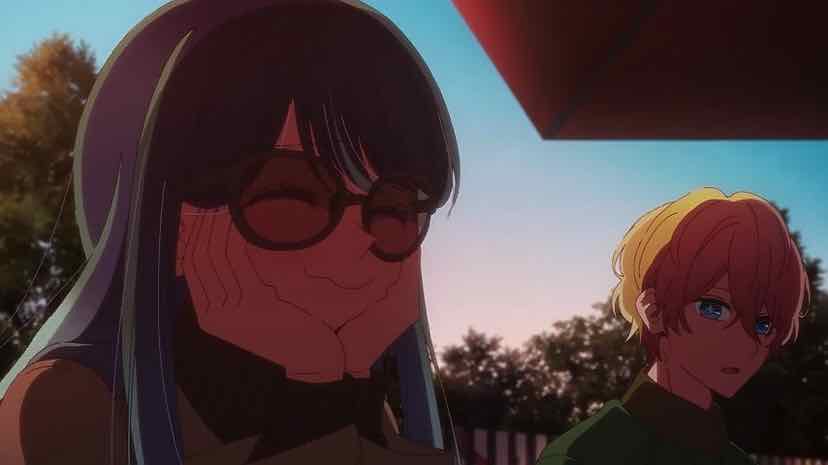
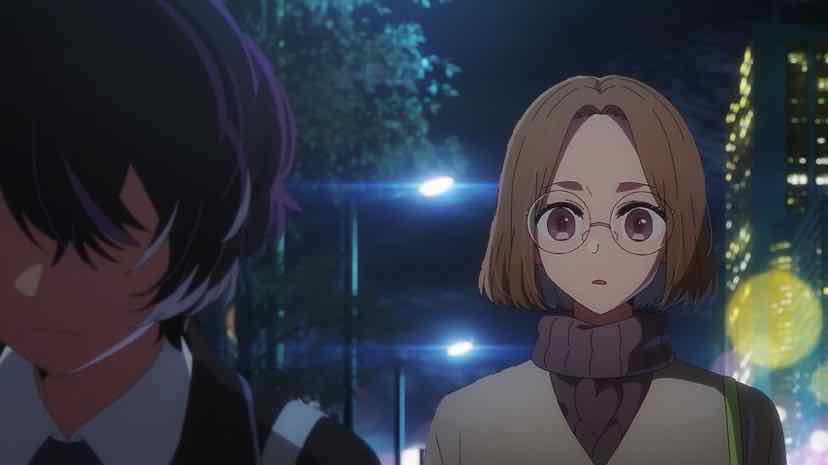
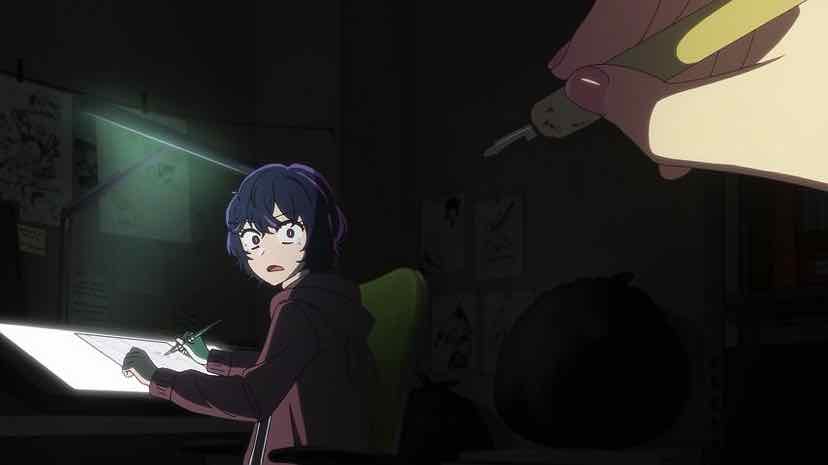
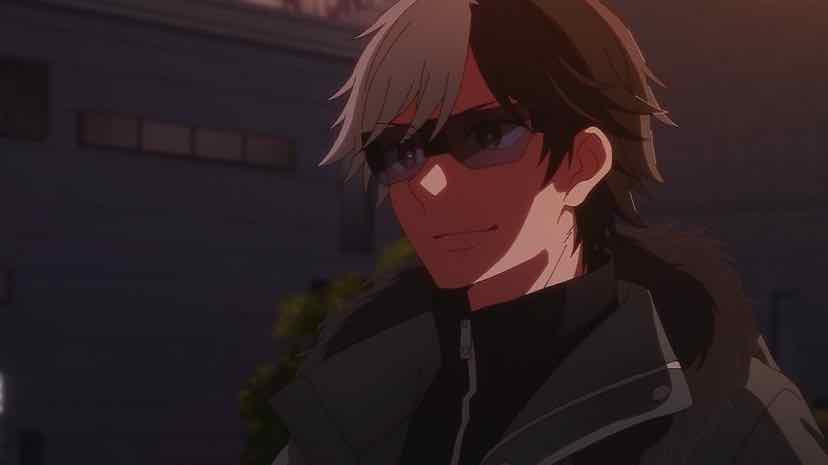
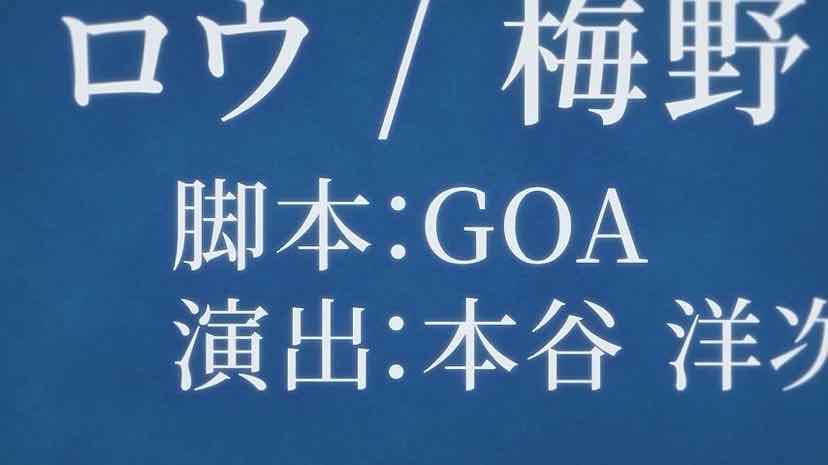
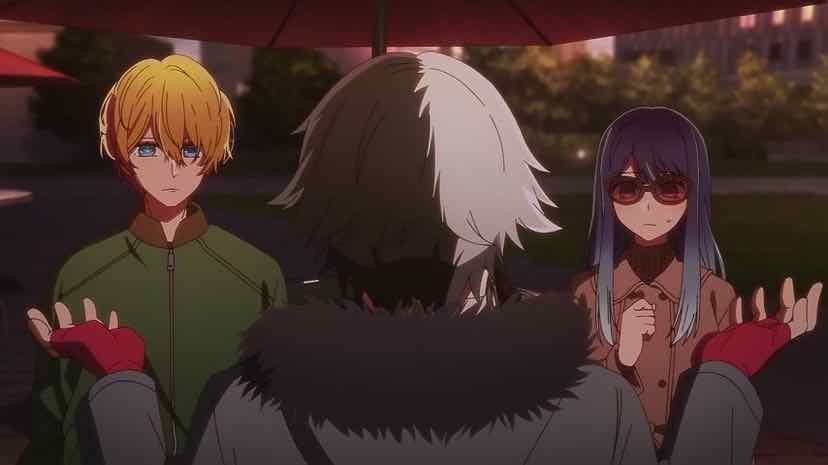
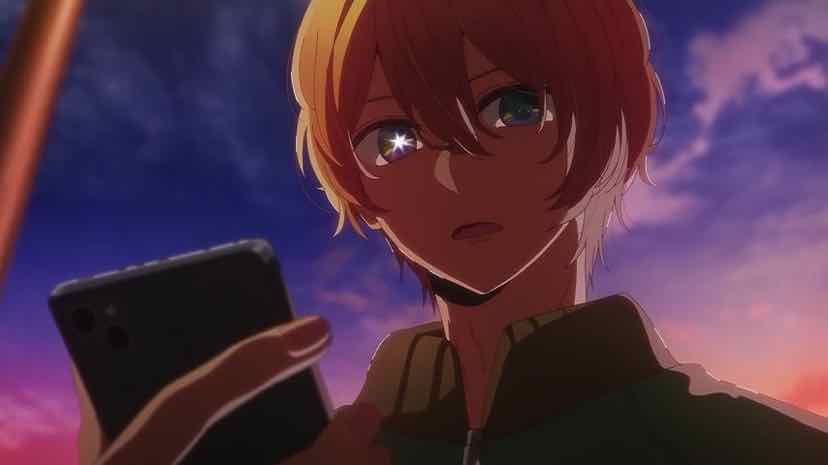
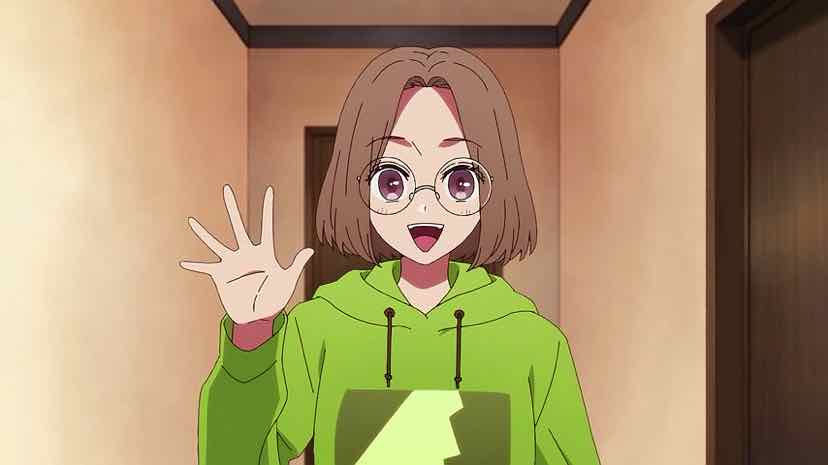
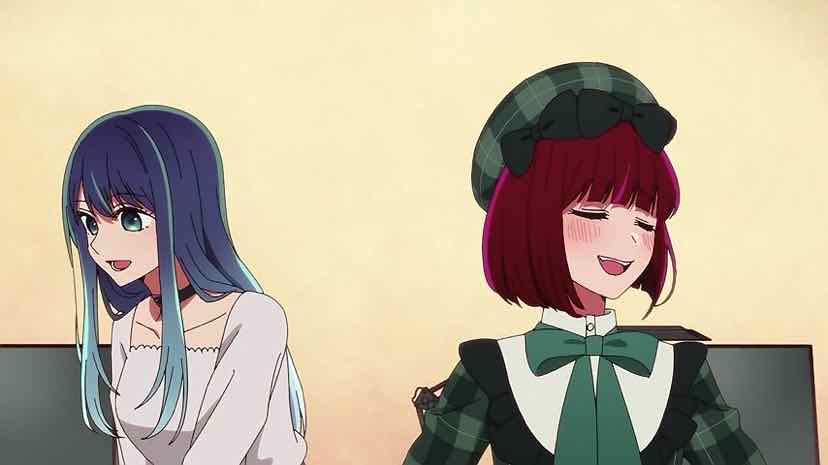
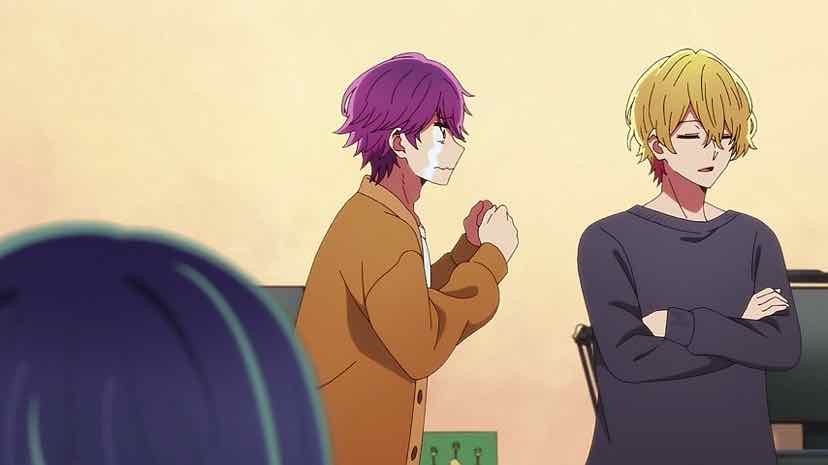
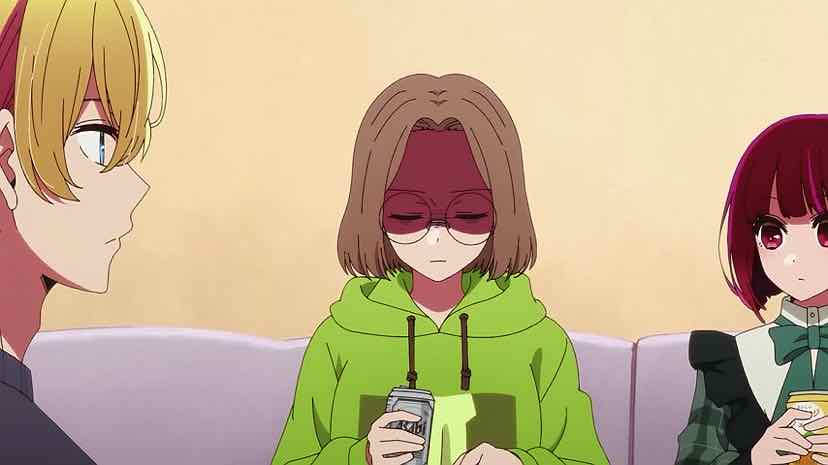
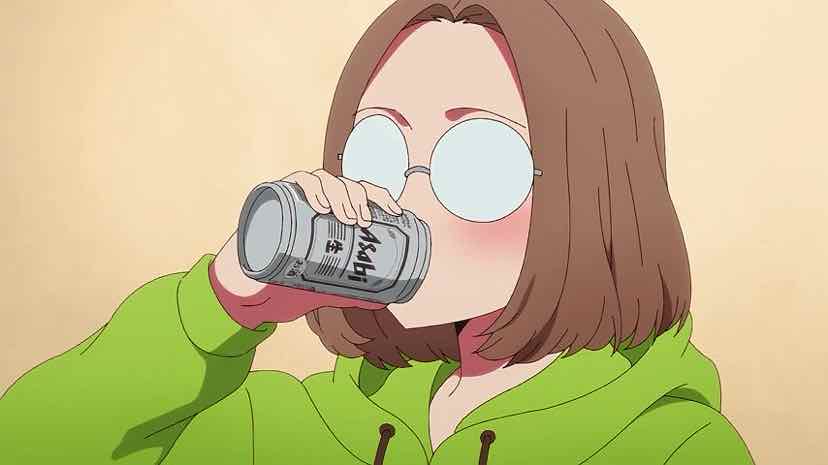
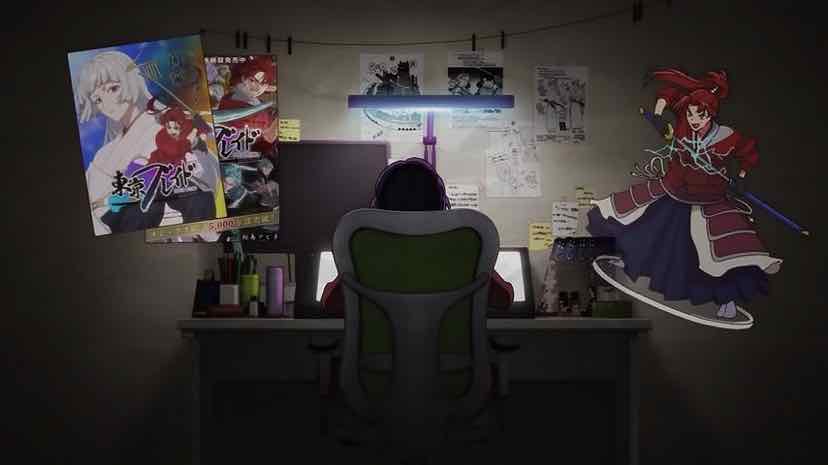
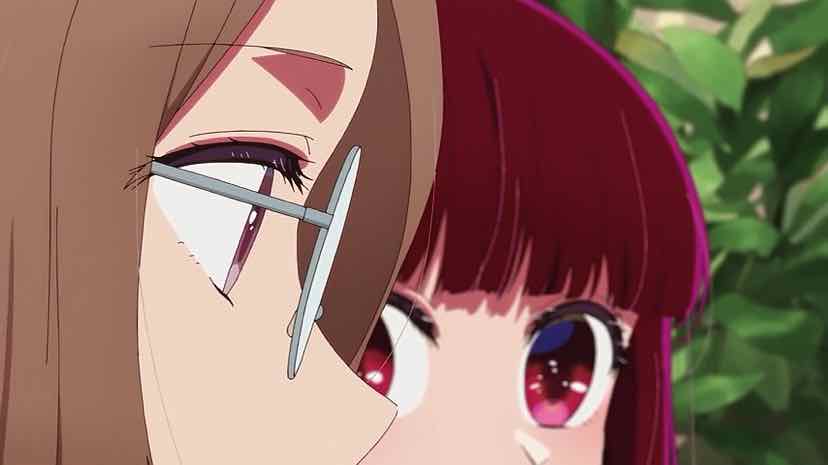
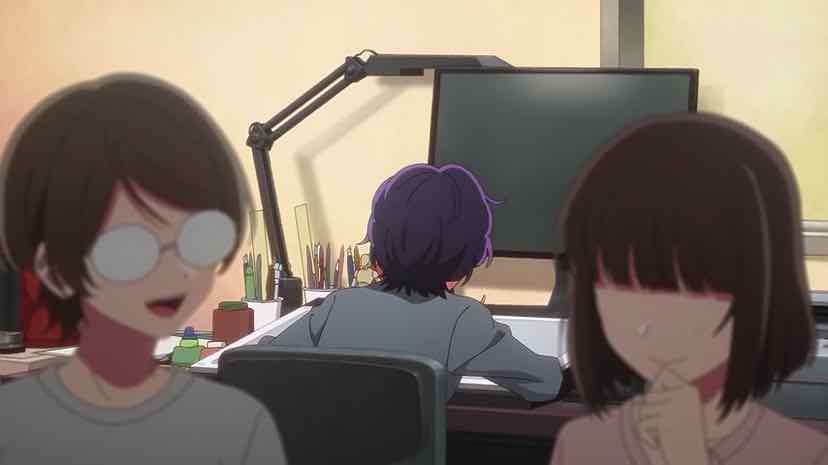
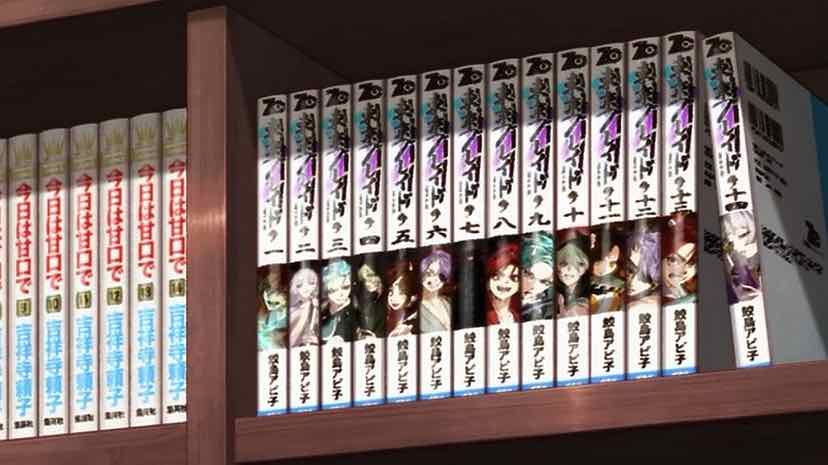
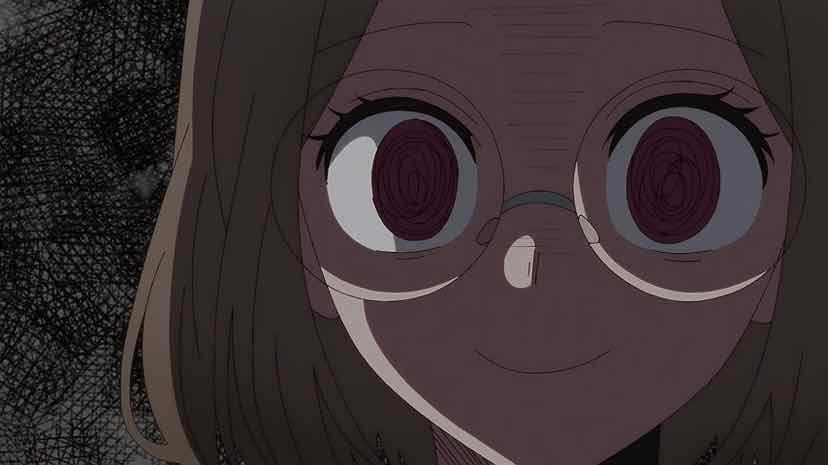
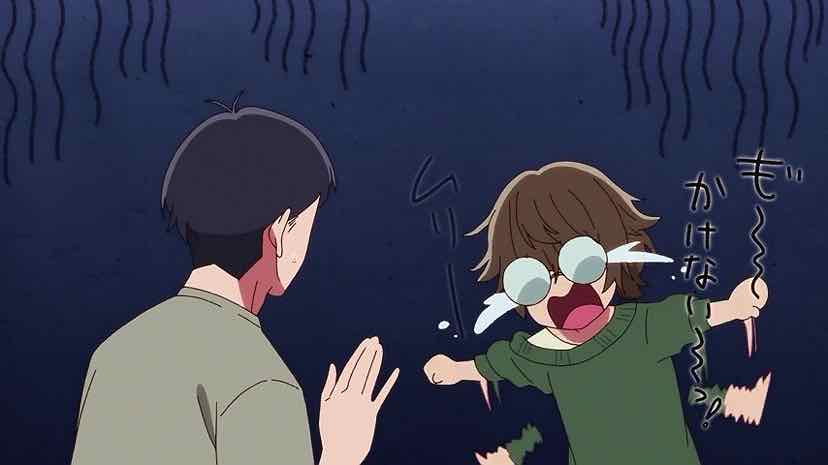
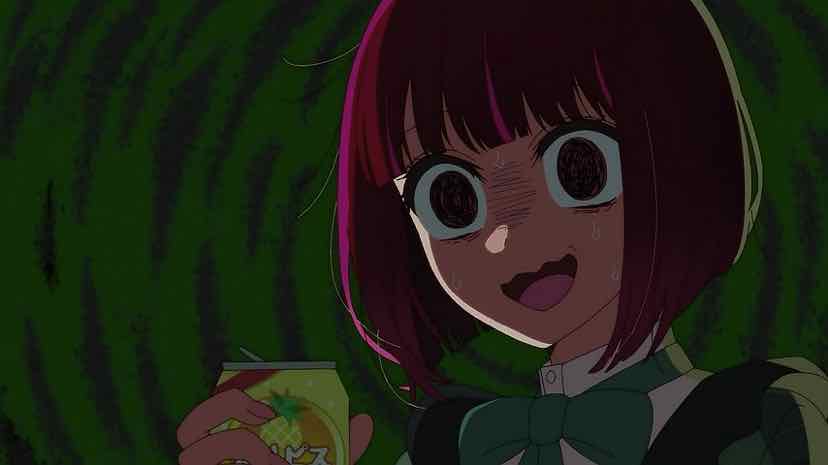
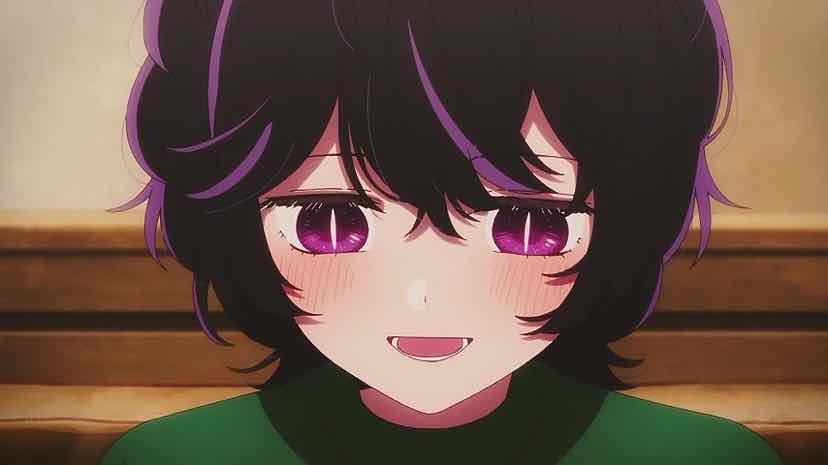
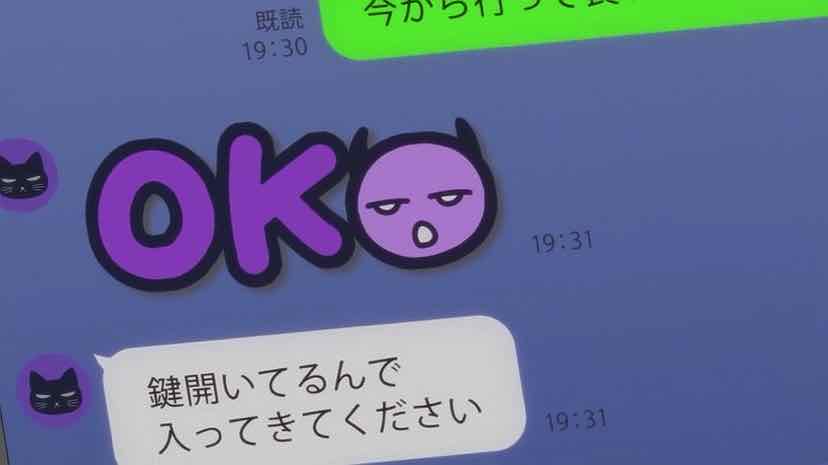
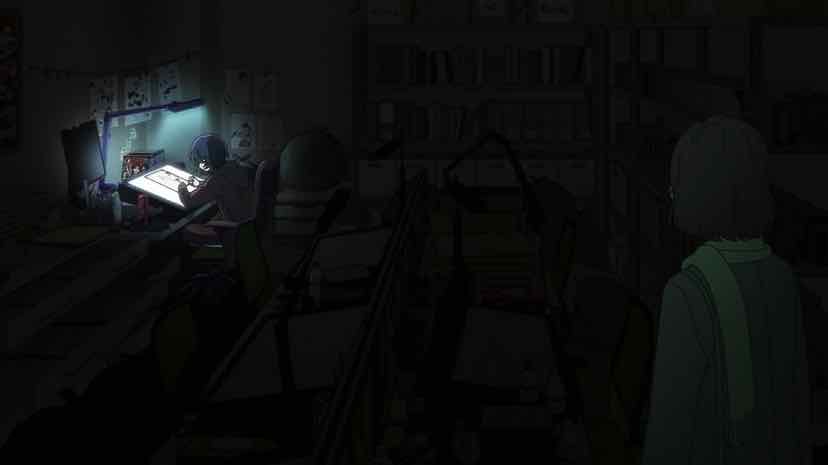
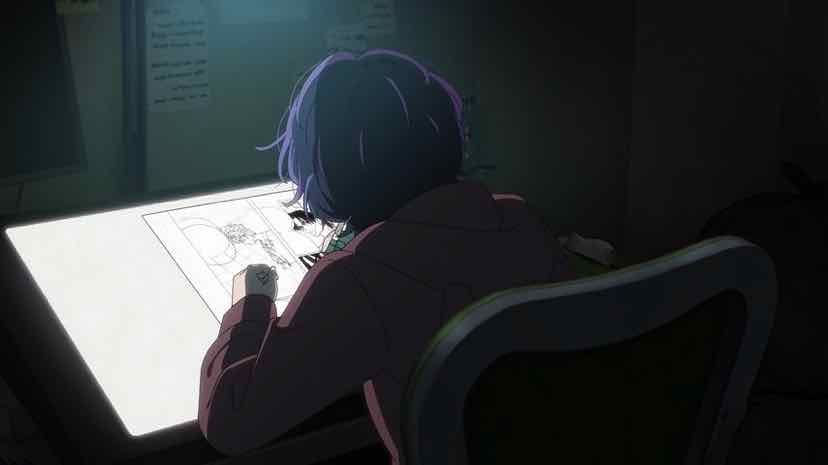
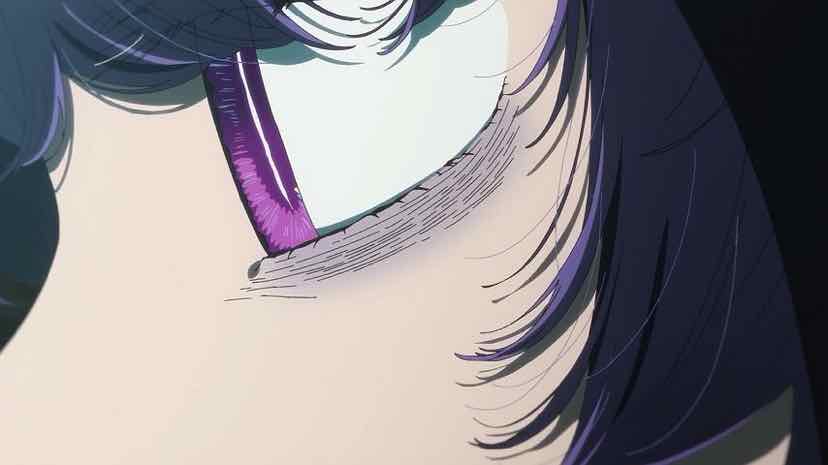
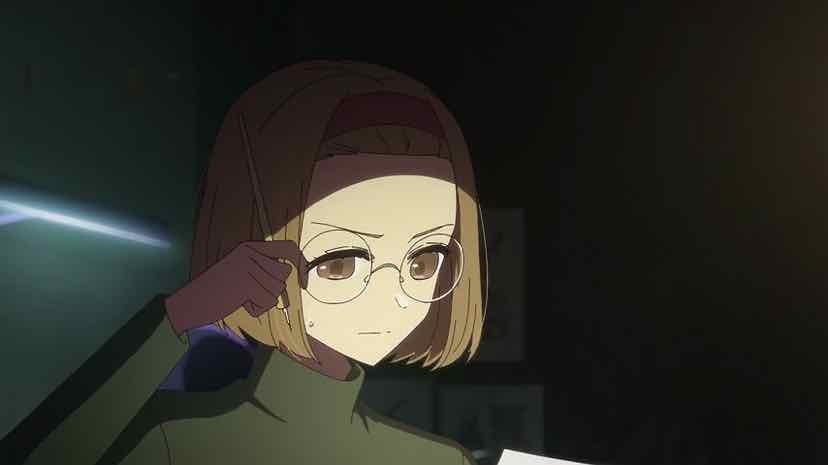
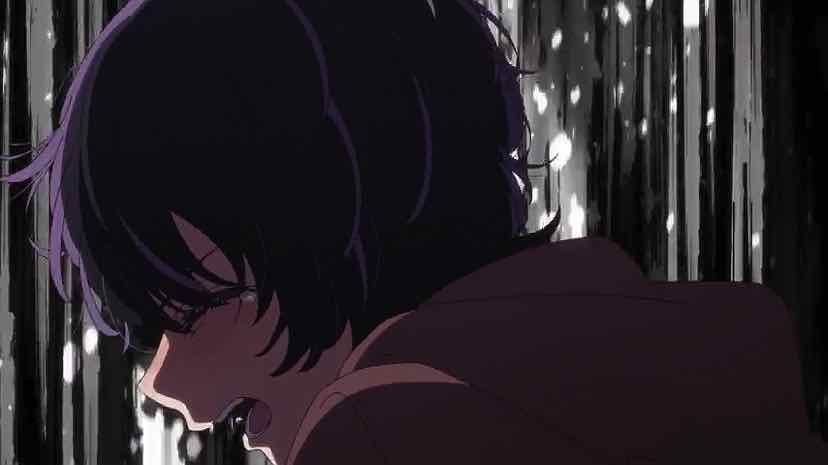
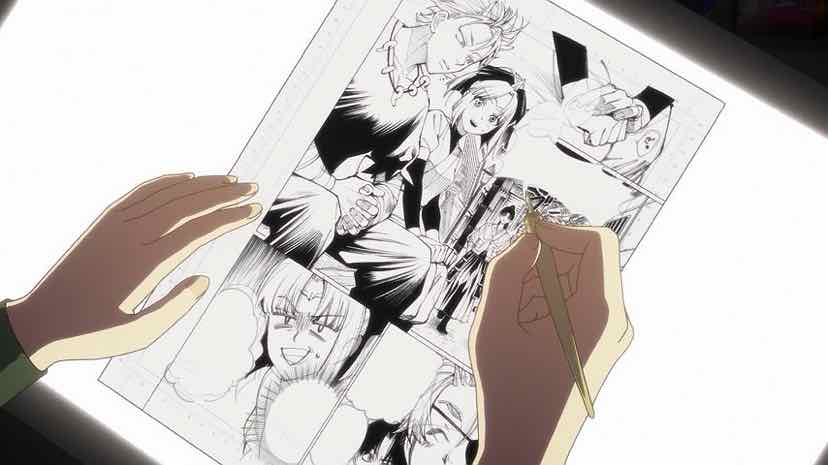
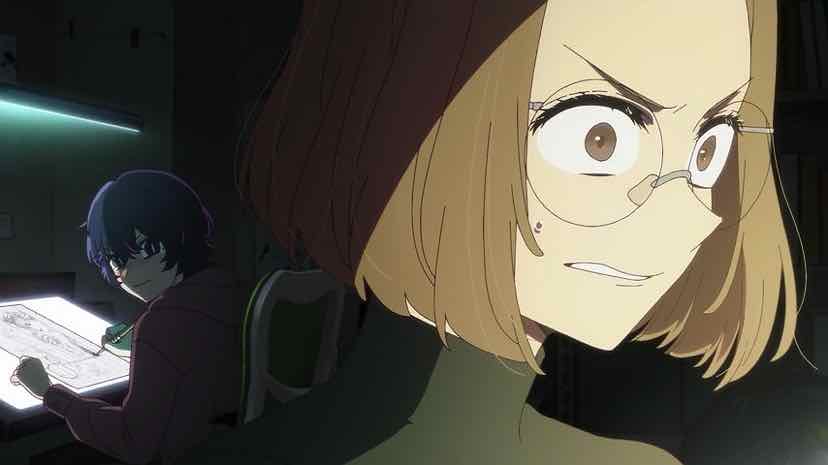
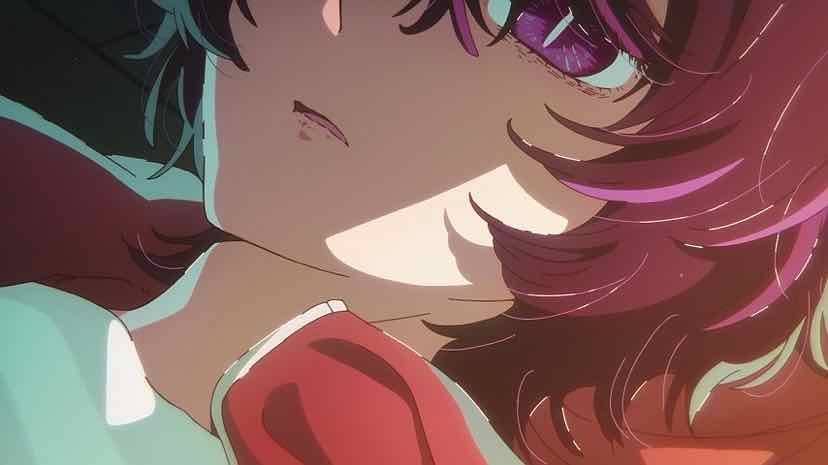
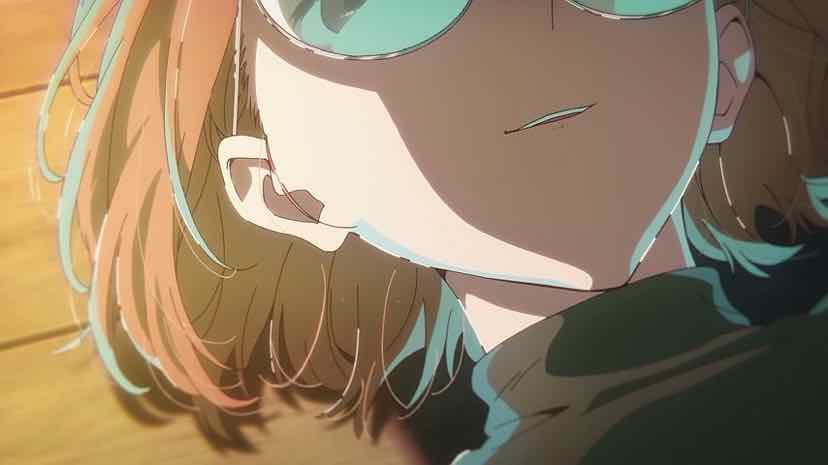
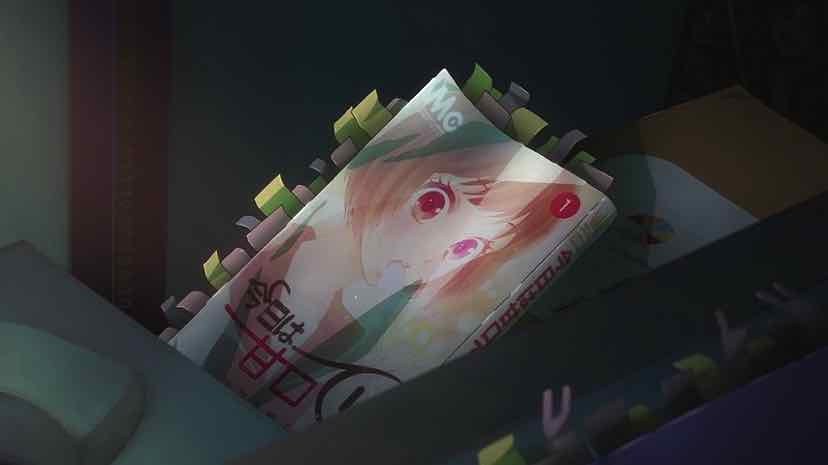
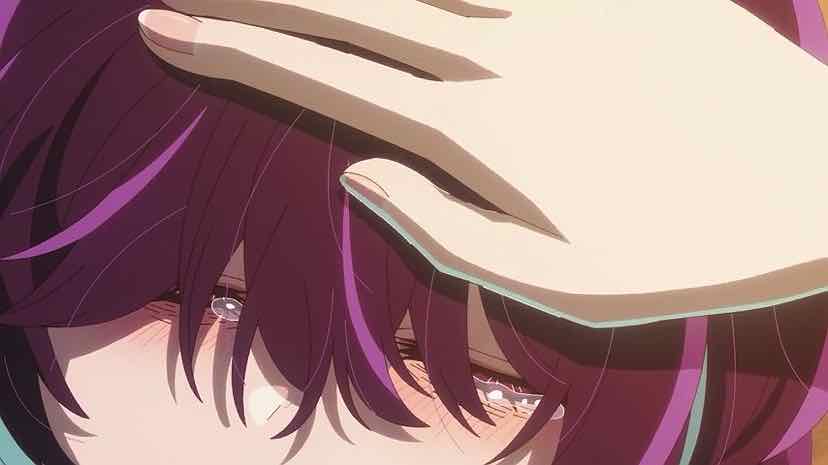
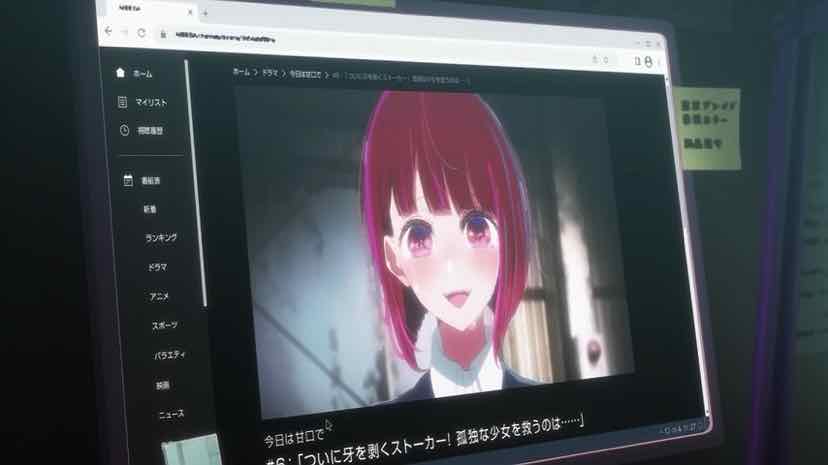
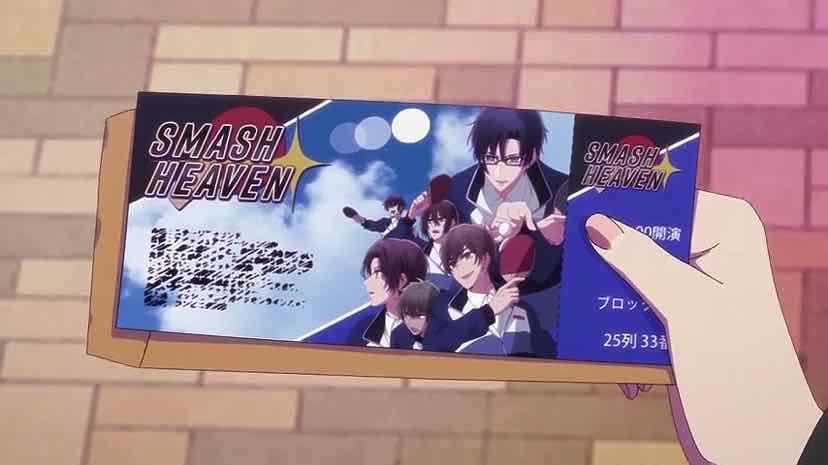
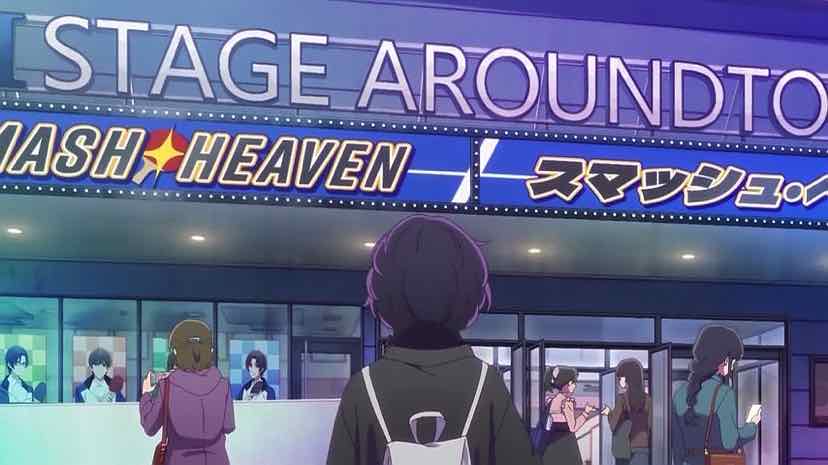
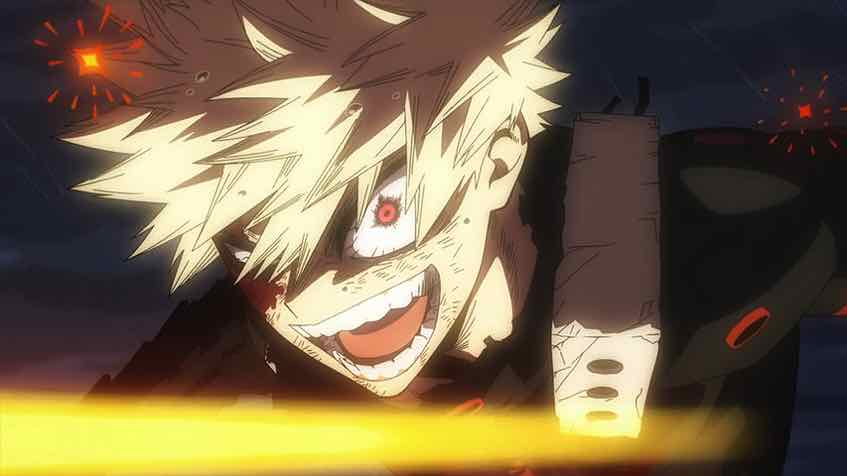
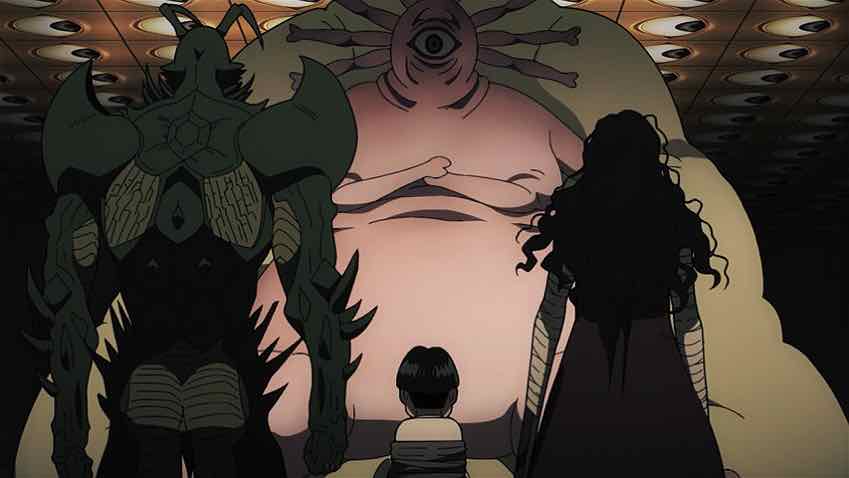
Joshua
July 19, 2024 at 12:25 amI’ve pretty much commented before that this arc is the only one outside of the premiere that actually works regarding its intended social commentary. Probably because most of its narrative is not entirely contorted to service Aqua’s plans instead of the other way around like usual and it’s not a ripped form the headlines story and the commentary it does offer regarding adaptations of ongoing work is more integrated into the narrative. Even if this arc still needs to establish a “bad guy” to antagonize just so Aqua can intervene as the “good man” in all of this. And well, I still can’t help but feel that this isn’t going to conclude in a way that doesn’t feel like yet another compromise just to advance Aqua’s plot beyond anything else.
Which makes it all the more disappointing that the arcs that come after this don’t even come close to this arc. The “bad people” become far more transparent and obvious, the moralizing becomes more heavy handed, the nuance is thrown out of the window and the subtext only gets more “yikes”-worthy regarding Aqua and Ruby. Everything regarding its social commentary ends up getting more and more contorted just to further Aqua’s increasingly convoluted revenge scheme to punish the very bad men at the top who killed Ai.
Vance
July 19, 2024 at 2:44 amI said it last week, but what you’re looking for in Oshi no Ko is probably not what the intended vision of the series is.
Take Vivy: Fluorite Eye’s Song for example. Regardless of what you thought of the quality of that show, I had pegged it after Episode 5 as being a show about the uniqueness of individual experience that happened to take place in a sci-fi setting. Whereas sci-fan fans were pissed at the show ’cause they were expecting loads of foreshadowing and shit when I was right all along that Matsumoto’s eyes only turned red to indicate it used its powers than it being a sign of it being evil and that if Matsumoto were actually evil that the show would become a train wreck.
My point is that whether you enjoy a show or not sometimes has to do with your expectations. Oshi no Ko is likely moreso a coming-of-age story with some social commentary rather than being a story concerned with completely unvarnished criticism of the Japanese entertainment industry.